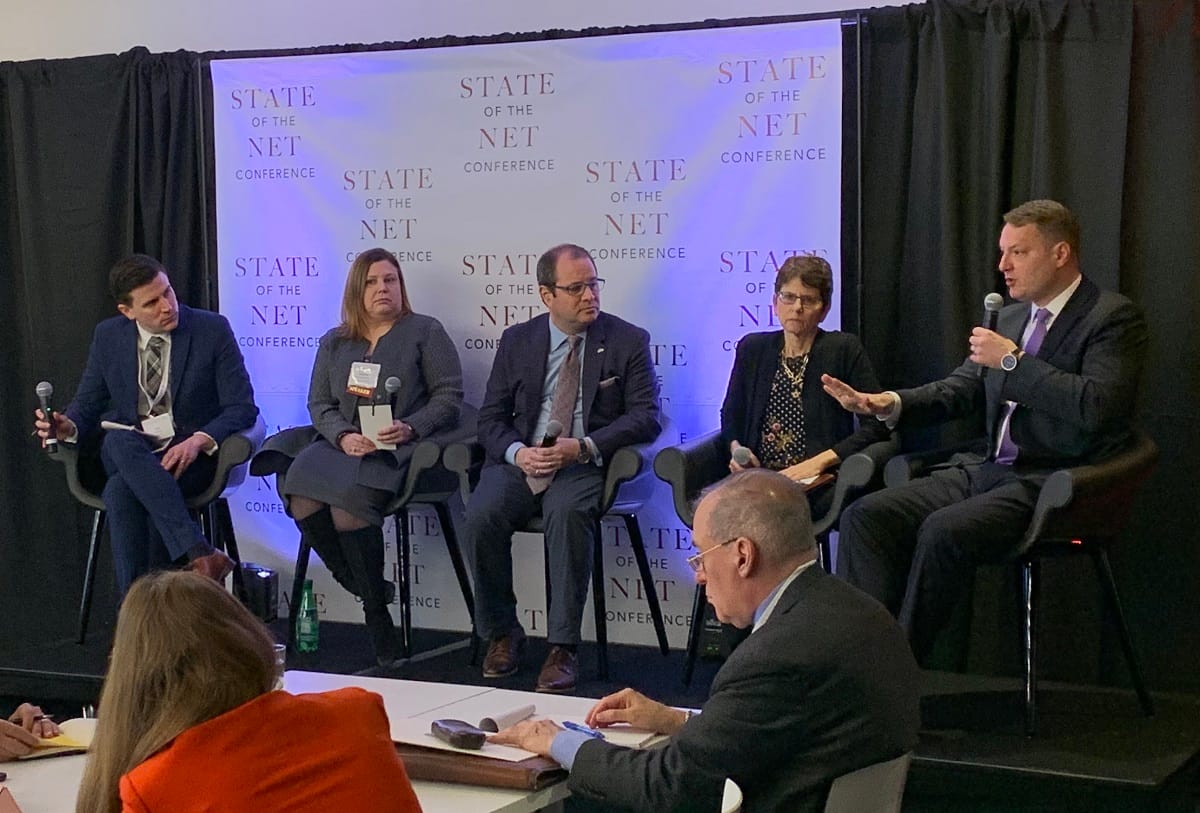Panelists Call Federal Privacy Legislation Necessary and Express Optimism Toward That Goal
WASHINGTON, January 29, 2020 – Federal privacy legislation is necessary to ensure standardization of legal treatment, technology experts said Tuesday at the 2020 State of the Net conference. On a panel on “Privacy and Preemption” at the annual tech policy gathering, speakers acknowledged the role of

WASHINGTON, January 29, 2020 – Federal privacy legislation is necessary to ensure standardization of legal treatment, technology experts said Tuesday at the 2020 State of the Net conference.
On a panel on “Privacy and Preemption” at the annual tech policy gathering, speakers acknowledged the role of the California Consumer Privacy Act in spurring discussion and action. But the CCPA fails to provide rules that are clear to consumers about their rights and clear to businesses about their obligations.
Jessica Rich, former director of the Federal Trade Commission’s Bureau of Consumer Protection, highlighted the irony of a visitor from Nevada to California travelling across the border and facing a situation of vastly different rights. This created a “bad consumer experience,” Rich said.
Chris Calabrese, vice president of the Center for Democracy and Technology, praised Congress’ handling of privacy legislation thus far, citing the seriousness with which representatives have approached the issue in the wake of serious national data breaches.
The panel also addressed where small businesses fit into the tug-of-war of data privacy. Rich said many small businesses can come into contact with sensitive user data and should not be given a free pass in legislation.
“Lest we forget, Cambridge Analytica was a small company,” cracked Jason Albert, Director of Public Policy at Workday.
The panel also defended the FTC against the criticism that it is unfit to enforce data privacy legislation. Albert argued that the FTC has an internationally respected reputation that would be very difficult for a new agency to imitate.
Rich pointed to the fact that the FTC is under-sourced with about only 50 employees assigned to privacy issues for the whole country. Calabrese added to the sentiment by referencing how the Information Commissioner’s Office, Britain’s FTC equivalent, has 500 employees for a nation a quarter the population.
Calabrese also expressed a desire for companies to have the ability to check in with the FTC regarding grey area privacy practices so as to avoid accidental infringement of privacy law.
The moderator capped off the session by asking for the panelists’ predictions as to the future of privacy law. The panel was cautiously optimistic about the future of privacy and believed that the country still had time to sort through the implications that information technologies pose.










